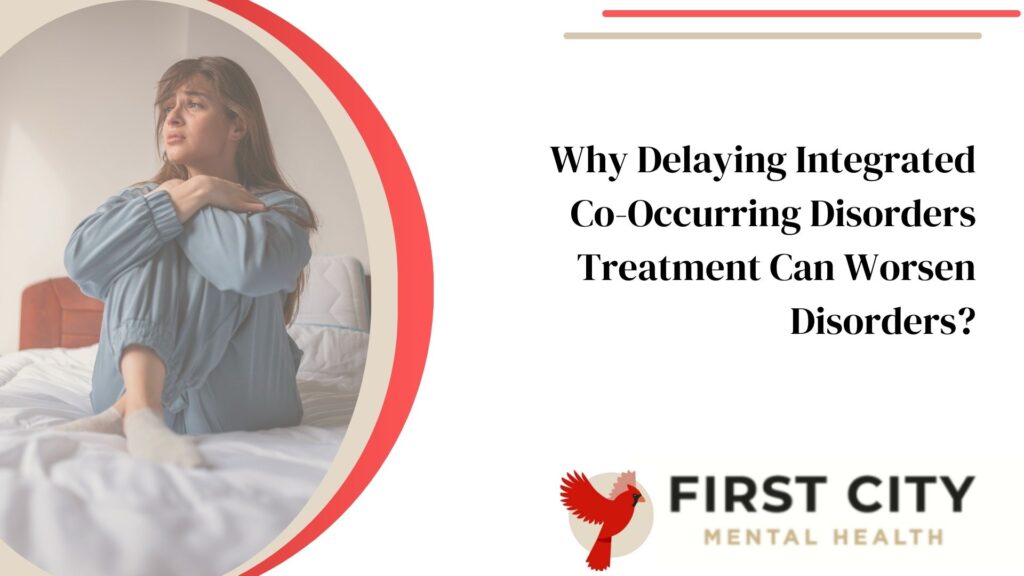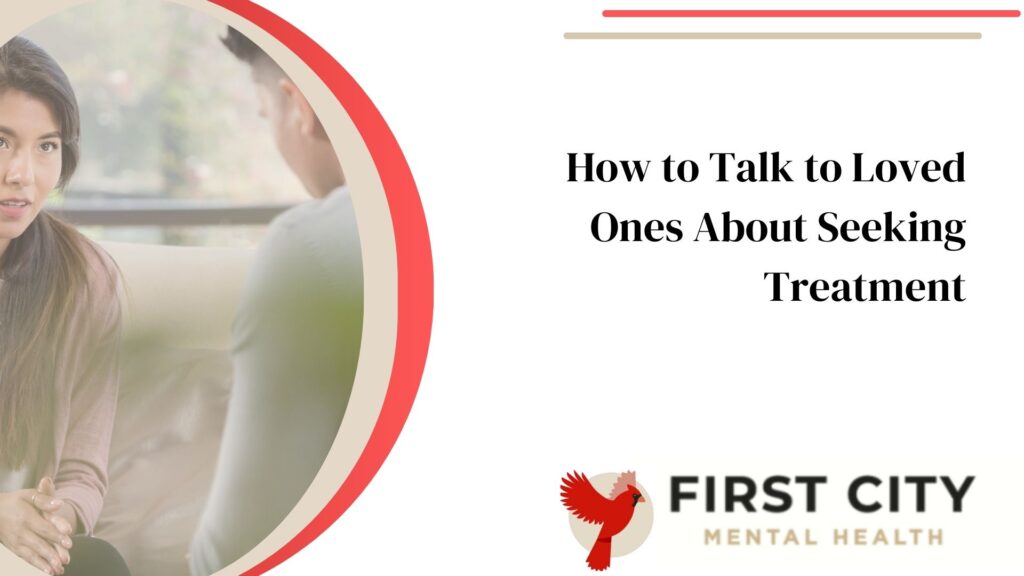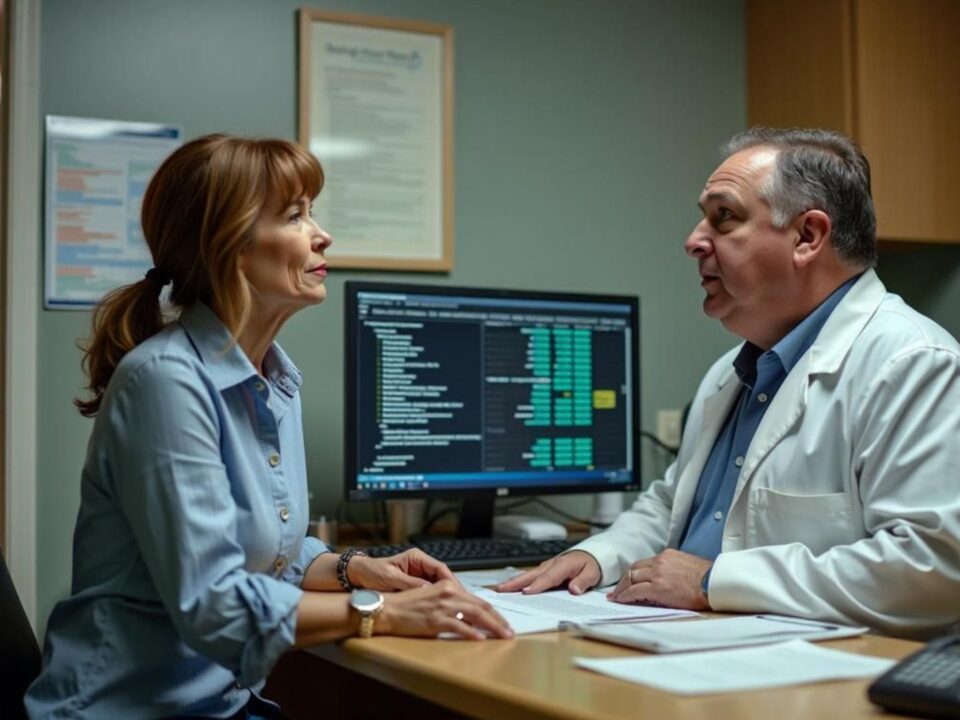
How Effective Is Integrated Co-Occurring Disorders Treatment?
January 21, 2025
How Trauma Can Lead to Co-Occurring Disorders Treatment: What to Watch For
January 21, 2025Many people struggle with both mental health issues and substance use disorders, often dealing with a mental disorder and addiction simultaneously. You might feel overwhelmed trying to manage both problems simultaneously, unsure when or how to seek help.
Co-occurring disorders treatment addresses these dual challenges. This type of care focuses on treating mental illness and addiction together for better outcomes.
This blog will help you identify early signs, understand why delaying treatment is harmful, and know where to get immediate help. Read on to find out more about taking control of your life.
Key Takeaways
- Seek help if you notice symptoms of mental illness and substance abuse.
- Treating both conditions together with integrated mental health and substance abuse treatment improves results.
- Delaying treatment makes symptoms worse and harder to manage.
- Recognize triggers like stress, trauma, and substance use for better care.
- Immediate action is crucial if there are thoughts of self-harm or suicide.
Understanding Co-Occurring Disorders
Dual diagnosis, refers to the presence of both a mental health disorder and a substance use disorder in an individual. These intertwined conditions can complicate diagnosis and treatment, as each disorder can exacerbate the other. Understanding co-occurring disorders is crucial for developing effective treatment plans that address both conditions simultaneously.
For instance, a person with depression might turn to alcohol to alleviate their emotional pain, while someone with anxiety might use marijuana to calm their nerves. These coping mechanisms can lead to substance use disorders, further complicating their mental health. The relationship between mental health disorders and substance use disorders is complex, and recognizing this interplay is essential for effective treatment.
Integrated treatment approaches that address both mental health and substance use disorders concurrently are vital. This holistic method ensures that both conditions are treated together, leading to better outcomes and a more comprehensive recovery process.
Prevalence and Statistics
Co-occurring disorders are more common than many people realize. According to the Substance Abuse and Mental Health Services Administration (SAMHSA), approximately 8.2 million adults in the United States have co-occurring disorders, representing about 3.4% of the adult population.
The prevalence of co-occurring disorders varies depending on the specific mental health disorder and substance use disorder. For example, individuals with bipolar disorder are more likely to have a co-occurring substance use disorder than those with other mental health conditions. Here are some eye-opening statistics on co-occurring disorders:
- 45% of people with a substance use disorder also have a mental health disorder.
- 29% of people with a mental health disorder also have a substance use disorder.
- 60% of people with a co-occurring disorder do not receive treatment for either condition.
These statistics highlight the urgent need for increased awareness and treatment options for co-occurring disorders. Addressing both conditions simultaneously through integrated treatment can significantly improve the quality of life for those affected.
What Are the Early Signs of Co-Occurring and Substance Use Disorders?
Mood, behavior, and functioning changes can be early signs of a co-occurring mental health condition and substance use disorder. Symptoms may include anxiety and depression. Watch for substance abuse issues as a key indicator.
Variability exists in symptoms due to individual experiences. Links to trauma and life stressors often play a role.
Seek help promptly if you notice signs of self-harm or suicidality. Early intervention with comprehensive treatment approaches is crucial.
Substance abuse often hides deeper mental health issues that need immediate attention as Co-occurring disorders treatment Kokomo, Indiana.
Why Delaying Integrated Co-Occurring Disorders Treatment Can Worsen Disorders?

Ignoring early signs can make co-occurring disorders worse. Environmental factors such as stress and trauma can significantly contribute to the development and worsening of these conditions. Delaying co occurring disorders treatment can lead to increased symptoms like hallucinations, delusions, anxiety, and depression. Symptoms may become more challenging to manage over time.
Delays in seeking help reduce the quality of life for those affected. Immediate professional care is crucial for anyone with thoughts of self-harm or suicide. Timely intervention is essential when dealing with PTSD after trauma.
Get help now from a co-occurring disorders treatment center in Kokomo, Indiana.
When Do Symptoms of Co-Occurring Disorders Become Unmanageable?
Delaying integrated treatment for co-occurring disorders can worsen co-occurring mental disorders, making symptoms like hallucinations, delusions, and suicidal thoughts more severe. PTSD symptoms such as flashbacks, anxiety, and nightmares also signal unmanageable distress.
Effective treatment options must be personalized for each person. Co-occurring disorders treatment centers in Kokomo, Indiana, offer help customized to your needs. Immediate action is crucial when symptoms disrupt daily functions or involve severe mental health issues.
How to Identify Triggers Leading to Co-Occurring Disorders
Recognizing triggers is vital for managing treatment for co-occurring disorders. Knowing these triggers helps in seeking the proper treatment.
Keep a Journal
Write down daily feelings and events.
Track moods and changes.
Note Stressful Events
Identify significant life changes such as moving or job loss.
Recognize how these events affect mental health.
Acknowledge Trauma
Be aware of past traumatic experiences.
Notice any connections between trauma and symptoms.
Monitor Substance Use
List substances used.
Observe if substance use worsens symptoms. Observe if drug abuse is being used as a coping mechanism and if it worsens symptoms.
Engage in Therapy
Work with a therapist to spot patterns.
Use therapy sessions to discuss possible triggers.
Collaborate with Healthcare Professionals
Consult doctors for medical insights.
Develop coping strategies together.
Identify Personal Patterns
Look for repeated behaviors linked to mental health dips.
Recognize activities that lead to substance use or anxiety.
Understanding when symptoms become unmanageable is key for timely treatment of co-occurring disorders.
Where to Turn for Immediate Help with Co-Occurring Disorders

Seek immediate help if experiencing thoughts of self-harm or suicide. Contact a mental health professional at once. Emergency options include calling 911 or visiting the nearest emergency room.
Treatment for co-occurring disorders can also involve psychotherapy and medications. Support groups offer emotional backing and advice. Consider alternative therapies like yoga and meditation to boost traditional methods.
Kokomo, Indiana, offers integrated co-occurring disorders treatment centers, providing comprehensive care plans customized for adult patients.
Overcoming Barriers to Treatment
Despite the growing need for co-occurring disorders treatment, several barriers limit access to care. These barriers include:
- Stigma: Many people with co-occurring disorders fear seeking help due to the stigma surrounding mental health and substance use disorders.
- Financial Constraints: Treatment for co-occurring disorders can be expensive, and many individuals lack health insurance or have limited financial resources.
- Limited Access to Care: There is a shortage of mental health professionals and treatment facilities that specialize in co-occurring disorders.
- Lack of Awareness: Many people are unaware of the existence of co-occurring disorders and the importance of integrated treatment.
To overcome these barriers, it’s essential to:
- Educate Yourself and Others: Learn about co-occurring disorders and the importance of integrated treatment. Share this knowledge to reduce stigma and promote understanding.
- Seek Specialized Help: Look for mental health professionals or treatment facilities that specialize in co-occurring disorders.
- Advocate for Policy Changes: Support initiatives that increase access to care and reduce stigma associated with mental health and substance use disorders.
- Support Organizations: Get involved with organizations that provide treatment and services for co-occurring disorders.
By understanding co-occurring disorders, recognizing their prevalence, and overcoming barriers to treatment, we can improve outcomes for individuals with these conditions and promote overall mental health and well-being.
What Happens If Co-Occurring Disorders Are Left Untreated?
Untreated co-occurring mental illnesses can severely disrupt daily life. Symptoms of depression and bipolar disorder may get worse, leading to an increased risk of substance abuse and self-harm.
Hallucinations and delusions may persist, making it hard to function well.
Suicidality often increases due to mental health issues and feelings of hopelessness. Untreated conditions can also lead to Post-Traumatic Stress Disorder (PTSD), causing flashbacks and anxiety.
Personalized adult co-occurring disorders treatment options are essential for recovery.
Why Self-Medication Is a Warning Sign for Co-Occurring Disorders
Self-medication often hides symptoms of mental health issues like depression, anxiety, and PTSD. People might use drugs or alcohol to cope with these untreated conditions. This coping mechanism can lead to severe substance use disorders.
Such actions complicate recovery from both mental health and substance use problems. Recognizing self-medication early helps in diagnosing co-occurring disorders quickly. Seeking professional treatment for co-occurring disorders is crucial for effective management.
Some examples may include therapy and substance abuse treatment from a treatment for co occurring disorders program in Kokomo, Indiana.
How to Talk to Loved Ones About Seeking Treatment

Talking about treatment of co-occurring disorders can be hard. Here are steps to help start the conversation:
Choose the Right Time: Find a quiet and private time to talk.
Be Supportive: Use kind and caring words.
State Observations: Share what behaviors you have noticed.
Avoid Blame: Speak without blaming or judging them.
Express Concern: Show that you care about their well-being.
Share Information: Provide facts about treatment for co-occurring disorders in Kokomo, Indiana, and the importance of addressing both the mental health condition and substance use issues.
Mention Help Availability: Explain that help, such as therapy and support groups, are available.
Highlight Professional Aid: Emphasize the need for professional assistance if there are risks of self-harm or suicidality.
Discuss Self-Medication Risks: Explain why self-medicating is dangerous.
Suggest Treatment Options: Talk about different treatment options like therapy, medicine, and support groups.
Encourage Alternative Therapies: Suggest trying alternative therapies along with conventional methods.
Keep Communication Open: Let them know they can always talk to you about this topic again.
Final Thoughts
Recognize early signs of a co-occurring mental disorder and substance use issue. Seek help promptly to prevent worsening symptoms. Identify triggers and avoid self-medication. Reach out to professionals in Kokomo, Indiana, for immediate co-occurring disorders treatment program.
Act now for a healthier future.
FAQs
What are co-occurring disorders?
Co-occurring disorders refer to the presence of both mental disorders and substance abuse problems in an individual.
When should you seek treatment for co-occurring disorders?
Seek help when symptoms of mental health issues and substance abuse interfere with daily life, relationships, or work performance.
Where can adults find treatment for co-occurring disorders in Kokomo, Indiana?
Adults can find specialized treatment for co-occurring disorders at various clinics and rehab centers in Kokomo, Indiana.
Why is it important to get treatment for co-occurring disorders early?
Early treatment helps manage symptoms better and prevents the conditions from worsening over time.






